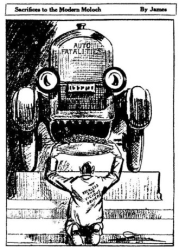From Wuest’s Word Studies in the Greek New Testament, on the title of Christian:

The word “Christian” was initially a derogatory term, used to mark out early believers. These saints often stood out – the World knew there was something different about them. And when someone called these marked men and women “Christians,” they correctly identified the cause of their distinction. Christ was at the center of those saint’s lives.
The added suffix, -ian, implied “from, belonging to, relating to, or like.” Intended to be negative, these definitions instead accurately described the believers.
- From: We are from Christ – a new creature, created in Christ Jesus.
- Belonging to: We belong to him – “we are his workmanship.”
- Relating to: We are related to him – we are “in Christ” – brought into the eternal relationship of the Father, Son, and Spirit.
- Like: We are being made into his image, like him – the “new man… is renewed in knowledge after the image of Him that created him.”
This is wonderful! So why was being an “-ian” of Christ thought to be negative? Because Christ was rejected and condemned by his own people and executed in the most brutal and public fashion known at that time. He was seen, not as a risen victor over death and sin, but as a failed revolutionary who only attracted the dregs of society.
Following Christ, identifying with him, means destroying pride, selfishness, and self-dependence and embracing his humility. Only when we empty ourselves of ourselves can we be filled with him – and only then will his radiance shine through us, apparent to all around us.
Of all spiritual traits, a consistent Christ-like attitude is the most desirable – because we are Christians, the Image Bearers of Christ, belonging to him, like him, relating to him, and from him, and we should always be bearing in our bodies the dying – the sacrificial love – of Christ Jesus.
Robert Chapman, an 19th century believer known in England as the “apostle of love,” told of an exchange he overheard while riding in a public coach. He had not opened his lips when a couple began arguing furiously in French, which Chapman could speak. At last the woman said, “I affirm that I am as innocent of that which you accuse me as is that holy man of God sitting in the corner, who anyone can see is going straight to heaven.”
Would to God our relationship with Christ would be so intimate, that we would be so “Christian” as to have it that apparent to all who are around us! May we be marked as the early believers, with Christ at our center, and “-ian” in all we say and do.
